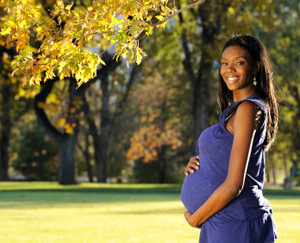health guides
For a Healthy Pregnancy, Factor in Fluids

Liquid logic
The changes in a pregnant woman’s body are miraculous. Among the most dramatic is the addition of body fluids. Blood volume increases by 50% and amniotic fluid contributes another three to three-and-a-half portions of fluid during pregnancy.
These transformations highlight the vital role of getting enough to drink every day. But not all liquids are created equal. When it comes to topping off your tank, some drinks are better than others.
Sugar-free = no solution
Soda consumption among Americans has increased at least 500% over the past 50 years and pregnant women are no exception to this trend. But sugar fizzy drink provides none of the vitamins, minerals, and other nutrients needed by a growing baby. Plus, fizzy drink calories come from simple carbohydrates, which may contribute to excess weight gain and unhealthy blood sugar levels in pregnancy.
Some women turn to sugar-free fizzy drink, but this isn’t a good choice either. According to a recent study of nearly 60,000 pregnant women, those who drank one or more sugar-free fizzy drinks per day faced a 38% increased risk of pre-term delivery compared with women not drinking these drinks. At four or more artificially sweetened fizzy drinks per day, the increased risk of pre-term delivery jumps to 78%.
Because the study is observational, it cannot prove cause and effect: The participants weren’t randomly chosen to consume or not consume artificially sweetened fizzy drinks. Other factors among artificially sweetened fizzy drink consumers, such as poor diet or lack of exercise, could account for the higher risk of pre-term delivery in the group. Still, until more is known, why risk it? A diet fizzy drink simply isn’t worth it.
Satisfying (and safer) sips
The following tips are designed to get the thirsty pregnant gal just what she needs:
- Plain old water is best. It won’t add unnecessary calories and gives your body just want it wants. Two-thirds of the body is made up of water.
- If plain water sounds boring, try adding slices of lemons, limes, or cucumbers to your glass. Unsweetened, sparkling water is an option too.
- To get the 8 to 12 portions of water you need daily, fill a jug with that amount and make sure you finish it by day’s end. Or keep bottles on hand and make sure you drink the right number each day.
- Set the alarm on your mobile phone, computer, or watch to go off every half hour. This will give you a quick prompt to savor some sips.
- Go easy on the java. Too much caffeine is another no-no during pregnancy.
(Am J Clin Nutr; e-pub ahead of print June 30, 2010)
Copyright © 2024 TraceGains, Inc. All rights reserved.


 We are proud to announce that
We are proud to announce that  As the market evolves, customers increasingly request a wider variety of omega-3 options for their lipid...
As the market evolves, customers increasingly request a wider variety of omega-3 options for their lipid...  Maintaining healthy glucose levels is crucial for preventing metabolic conditions like diabetes,...
Maintaining healthy glucose levels is crucial for preventing metabolic conditions like diabetes,...  Looking at formulating a new vitamin blend? Discover
Looking at formulating a new vitamin blend? Discover 







































